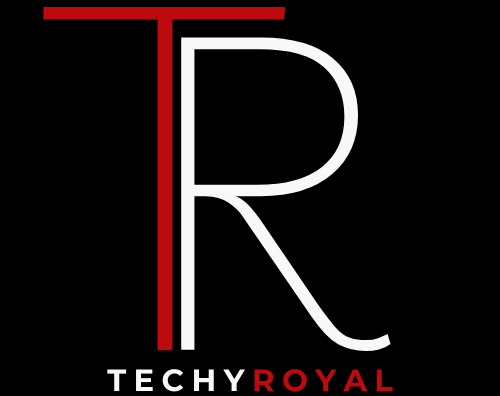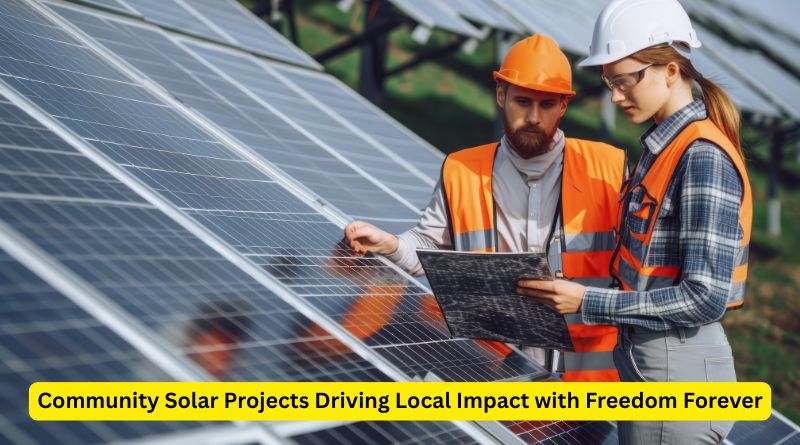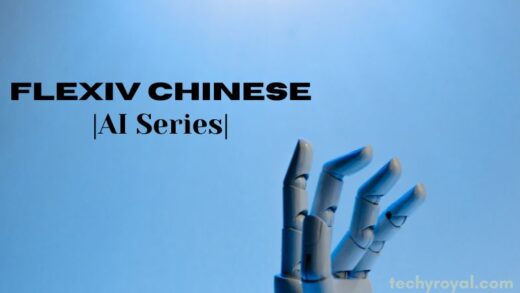Community Solar Projects Driving Local Impact with Freedom Forever
Community solar has emerged as one of the most promising tools for expanding access to renewable energy. Unlike traditional rooftop systems that require property ownership and upfront capital, community solar allows individuals to subscribe to a shared solar array and receive credit on their utility bills. Freedom Forever Solar, a leading residential solar provider with a growing national presence, supports models that remove long-standing financial and structural barriers to solar access.
Momentum around community solar is growing for good reason. In neighborhoods that have long faced barriers to clean energy access, shared solar projects are now driving tangible change, lowering utility bills, creating new jobs, and strengthening local infrastructure. The opportunity to bring both economic and environmental benefits to underserved communities has made community solar one of the most compelling models in the nation’s energy transition.
Energy Equity Through Shared Access
Community solar provides a renewable energy option for people who rent, live in multi-unit housing, or face rooftop installation restrictions. These shared systems are often built on public land, warehouses, or open space and allow hundreds of households to participate. Subscribers receive a portion of the electricity generated, reducing their monthly utility costs.
In many states, policy mandates prioritize participation by low- to moderate-income customers. This structure ensures that cost savings are directed at those who benefit most. It also represents a meaningful step toward correcting energy disparities, where marginalized communities often pay disproportionately high energy bills.
Reducing Energy Burden
Low-income households typically spend a larger share of their income on energy costs, a challenge known as an energy burden. Community solar programs help reduce this strain by offering guaranteed bill savings, often 10 to 20 percent lower than standard rates. These savings can ease financial stress and free up resources for food, housing, or healthcare.
In states such as New York, Colorado, and Illinois, incentive programs ensure that community solar developers set aside a portion of subscriptions for income-qualified participants. This proactive approach allows residents to participate without requiring credit checks or long-term contracts, making it easier to enroll and benefit.
Local Job Creation and Economic Development
Beyond bill savings, community solar stimulates economic activity. Construction, permitting, system maintenance, and customer service roles are typically sourced locally. These jobs not only provide stable wages but also create on-ramps for long-term careers in clean energy.
Freedom Forever Reviews often highlight the company’s commitment to internal training, mentorship, and clearly defined career pathways. Employees who begin working on community solar installations often go on to develop advanced skills in system diagnostics, project coordination, or energy design. This structured approach to career growth enhances retention, fosters local talent, and strengthens community investment in clean energy jobs.
Strengthening Community Resilience
In addition to economic benefits, community solar enhances neighborhood resilience. Shared solar projects often include battery storage or microgrid capabilities, providing backup power during outages. It is particularly valuable in areas vulnerable to climate-related disruptions, where outages can jeopardize safety and access to critical services.
When communities control their energy sources, they are less dependent on the aging grid infrastructure. These systems also allow for local ownership models, where a nonprofit, housing cooperative, or community development organization manages the project. This ownership helps build civic pride and encourages reinvestment of energy savings into other community needs.
Educational and Training Opportunities
Community solar projects also serve as hubs for education and workforce development. Local organizations often partner with developers to create internships, workshops, and hands-on training for students or career switchers. This exposure introduces new generations to solar technologies and career pathways in clean energy.
Vocational schools and community colleges increasingly include community solar systems as part of their curriculum. By aligning training with real-world projects, these programs prepare job seekers to meet growing labor demands and contribute meaningfully to projects that benefit their neighborhoods.
Addressing Historical Injustices
Environmental justice has become a key theme in energy policy. For decades, fossil fuel infrastructure has disproportionately affected communities of color and low-income neighborhoods. Community solar offers a corrective approach by providing clean, locally sourced energy to the same areas that have endured pollution and underinvestment.
Federal legislation, such as the Inflation Reduction Act, now includes tax credits and grants specifically tied to low-income solar development. These incentives have already supported projects in underserved areas and are expected to drive further adoption. In this context, community solar is more than an energy source. It is part of a larger movement toward fairness and inclusion.
Overcoming Implementation Challenges
Despite its promise, community solar faces implementation hurdles. Permitting processes can vary widely across municipalities, delaying project timelines. Grid interconnection requirements may also differ by utility, adding costs and complexity. These challenges can be especially difficult to navigate for projects located in under-resourced regions.
Policy reforms at the state level are helping streamline procedures, but gaps remain. Advocates argue that a national community solar framework would support more consistent deployment and unlock access for the millions still waiting to benefit. Collaborative solutions involving local agencies, utilities, and developers are beginning to ease these barriers.
Success Stories from the Field
Several states have become models for inclusive solar development. In Minnesota, community solar gardens have served more than 20,000 customers, many of them in low-income households. The Colorado Energy Office’s Low-Income Community Solar Demonstration Project has helped communities cut energy bills while expanding workforce training opportunities.
In Illinois, the Illinois Solar for All program ensures that community solar serves environmental justice communities through verified participation targets. These efforts show how local leadership and strong policy frameworks can translate into tangible benefits for underserved populations.
Partnerships That Make an Impact
Successful community solar projects depend on strong partnerships between developers, utilities, nonprofits, and local governments. These collaborations help streamline permitting, ensure equitable participation, and deliver reliable long-term service to subscribers.
Organizations like GRID Alternatives and local energy coalitions often serve as intermediaries, connecting community needs with technical expertise. Developers like Freedom Forever Solar help build trust and deliver results that matter not just to markets but to people.
Building a Better Energy Future
As more states adopt supportive policies, the potential for community solar to transform low-income neighborhoods is growing. Projects underway today can serve as blueprints for equitable energy access in the years to come. With careful planning and inclusive frameworks, clean energy can reach those who have too often been left out.
The shift is already happening. As awareness spreads and partnerships deepen, community solar is no longer just a pilot idea. It is becoming a mainstream approach to clean energy that empowers individuals and strengthens communities.




